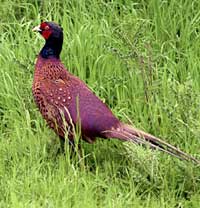Game farmers slate new welfare code

DEFRA has issued a new code of practice for the welfare of gamebirds, setting out minimum space allowances and other recommendations.
But it was immediately condemned as an “unworkable mess” by the Game Farmers’ Association.
The code is expected to come into effect on 1 October 2010 and will include recommendations on providing food and water, and the use of certain types of equipment.
It also specifies space allowances for housing breeding pheasants and partridges, with 1sq m a pheasant, 0.5sq m a grey partridge and 0.29sq m a red large partridge.
Food and farming minister Jim Fitzpatrick said: “The government promised to address concerns about the welfare of gamebirds, and I believe that the new code strikes the right balance between welfare needs and protecting businesses.”
But the GFA referred to the new changes to the code as “last-minute” and chairman Jonathan Crow said: “The government’s code, as now laid, will spell chaos for the industry unless it can be changed.”
He continued: “The code must now be withdrawn and re-worked – a process with which we will be happy to help.”
Other organisations represented on DEFRA’s Gamebird Working Group, set up in 2007 to draft the code, were equally angry.
Chris Davis, a specialist vet with The Game and Wildlife Conservation Trust, said that the space allowances could be “disastrous” for gamebird welfare. “One only needs to imagine a pair of partridges kept for any length of time in a metre-square pen on grass to think of the problems.”
Another gamebird vet, Stephen Lister, said: “The emergence of space allowances is particularly confusing, especially as this was not a feature of any of the options in the consultation document. I am not aware of the science on pheasant space requirements, nor why grey partridges need something so different from redlegs.”
The GFA also raised the issue that the area limit for partridges is not stated as a minimum so, if a partridge system is either smaller or larger, there is a risk of prosecution.
As it stands, Parliament cannot change the detail in the code at this stage. If it is not withdrawn by the minister or annulled in its entirety by Parliament during the next 40 sitting days, the code will automatically be approved.
It is unclear whether compensation for disruption of livelihoods as a result of the new code would be payable.
